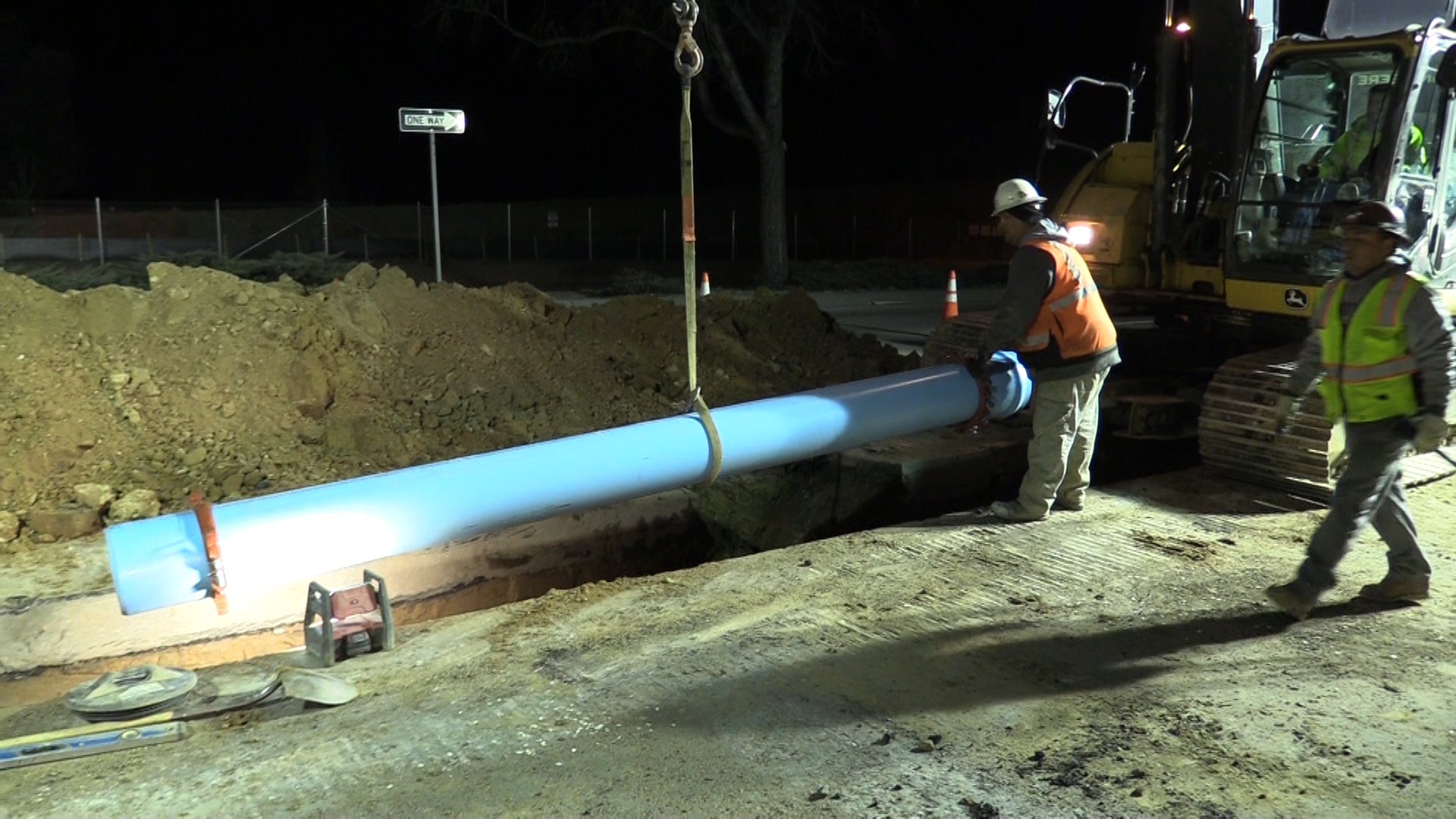
All hail the energy-water nexus
Like two sides of the same coin, discussions about energy mean discussions about water — and vice versa.
"In the utility industry we call it the energy-water nexus. It takes energy to treat and deliver water, and water to generate electricity," said Brian Good, chief administrative officer at Denver Water.
On the energy side, crops grown to be converted into biofuels, such as ethanol made from corn sugarcane or sugar beets, need water for irrigation.
In power plants, water heated into steam is used to turn the turbines that generate electricity. Water also is needed to cool equipment.
The U.S. Geological Survey estimates that 133 billion gallons of water were funneled through the nation’s power plants in 2015 — every single day. That’s about 408,162 acre-feet of water, or enough to supply drinking water to Denver Water’s customers for about two years.
On the water side, energy is needed to treat and deliver water as it’s pumped from lakes, rivers and aquifers, cleaned to drinking water standards and sent to customers.
Luckily, much of Denver Water’s system uses gravity to move water.
Melting snow tumbles down mountain streams and through pipelines to treatment plants. Those plants, as well as treated water storage tanks, are sited at points around the metro area that are higher than much of the Mile High City. That means gravity can help move water through pipelines to about 60 percent of the 1.4 million people in Denver and many surrounding suburbs who rely on Denver Water for drinking water.
But Denver Water’s system also uses pumps, which run on electricity, to move water through treatment plants. And electric-powered pumps move water through the pipeline network in parts of Denver Water’s service area where gravity will not help.
And due to a range of uncertainties related to climate change, from changing weather patterns to the potential for earlier runoff seasons, shifting to a more sustainable power portfolio is expected to have a positive impact on the environment.
That’s why Denver Water hailed Xcel Energy Inc.’s announcement on Dec. 4 that it will deliver 100 percent carbon-free electricity to its customers by 2050. The energy company also set an interim goal of cutting carbon emissions from its power generation operations 80 percent by 2030 compared to 2005 levels in the eight states where it serves customers.
“Like Xcel Energy, Denver Water is committed to be a responsible steward of the resources entrusted to us. We applaud Xcel’s commitment to sustainability,” Good said.
Xcel said the new goals are the most ambitious to be announced by an electric utility in the United States.
Xcel is Colorado’s biggest power utility, providing electricity to 1.5 million customers across the state. The utility delivers power to a total of 3.6 million customers in eight states.
“Xcel Energy’s initiative, combined with energy-reduction efforts by customers like Denver Water, will begin to reduce the importance of the interdependence between energy and water,” Good said. “If we reduce the amount of electricity needed to deliver water and the amount of water needed to generate electricity, then our collective customers, the environment and all of Colorado will benefit.”
Xcel has already cut its carbon emissions from coal- and natural gas-fired power plants by 35 percent compared to 2005. They’ve done so by phasing out power plants that rely on fossil fuels and building new wind and solar farms in Colorado and elsewhere.
Ben Fowke, Xcel’s chairman, president and CEO, said in December that the company is committed to cutting more carbon emissions “because we’re encouraged by advances in technology, motivated by customers who are asking for it and committed to working with partners to make it happen.”
At Denver Water, the same sustainability ethic extends far and wide throughout the organization.
On the business side, responsible financial practices helped the organization earn a AAA rating from all three bond-rating agencies, lowering our borrowing costs and helping to keep customers’ rates as low as possible. Additionally, the redevelopment of Denver Water’s 35-acre operations complex near downtown and construction of the new Northwater Treatment Plant are incorporating green building practices.
The Northwater Treatment Plant is designed to minimize energy use and carbon dioxide emissions.
Several buildings at the plant will be built partially underground, reducing the amount of energy needed for heating and cooling as well as the plant’s visual impact. Energy-efficient LED lighting will be used in interior and exterior spaces. Landscaping at the plant will include drought-tolerant native grasses, trees and shrubs.
And Denver Water itself generates clean, green energy, typically more than 70 million kilowatt hours a year, saving ratepayers about $4 million a year, via seven hydropower generators in its system. The organization aims to be energy neutral by 2020 and has been recognized locally and nationally for its efforts.
In October 2018, Denver Water received the 2018 Sustainable Water Utility Management Award from the Association of Metropolitan Water Agencies. The award goes to utilities that have achieved a balance of innovative and successful efforts in areas of economic, social and environmental endeavors. Denver Water also received a “Love This Place” award in November 2018 from Denver’s Office of Sustainability for its implementation of sustainable practices.




